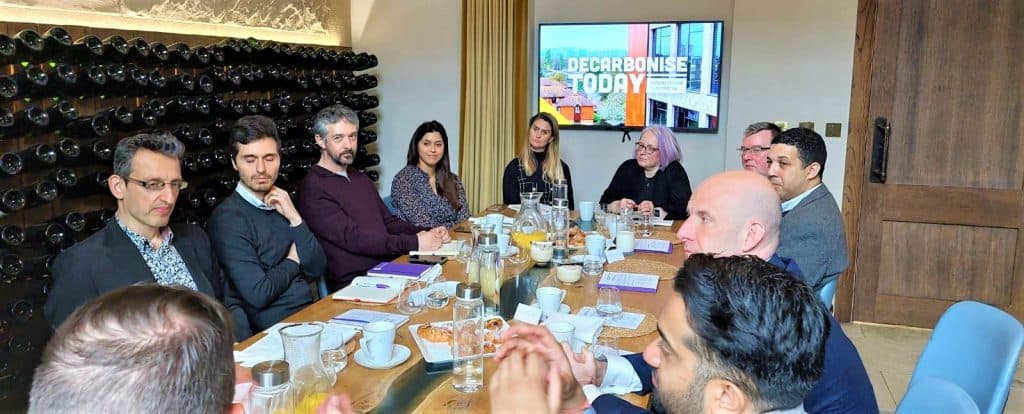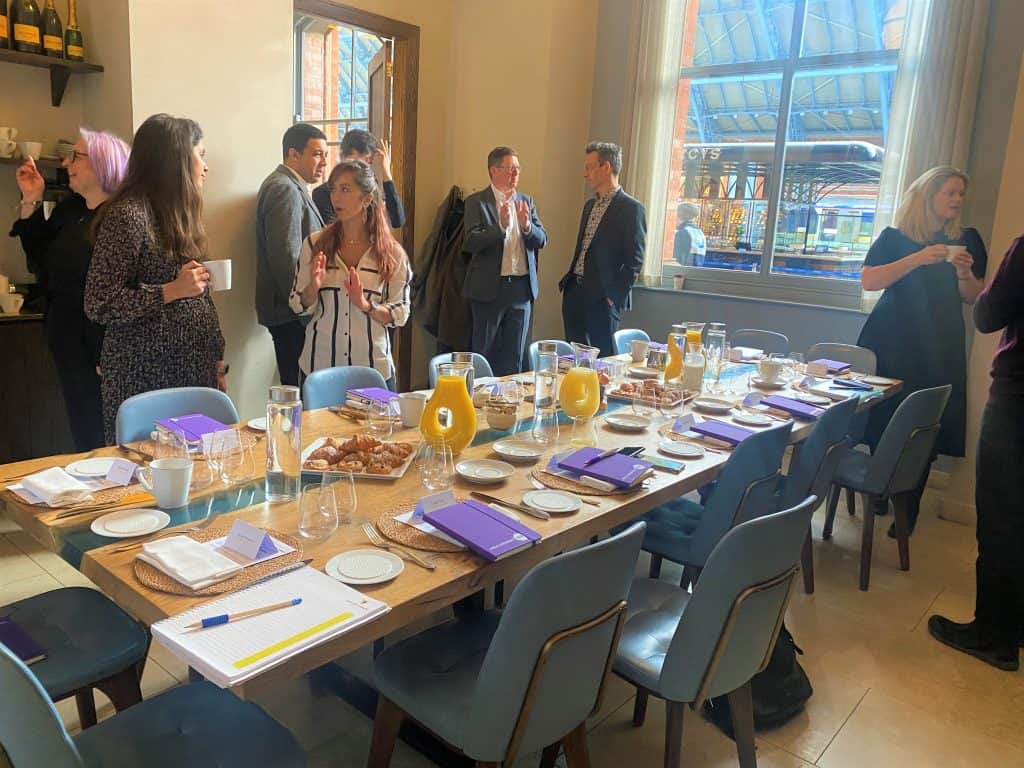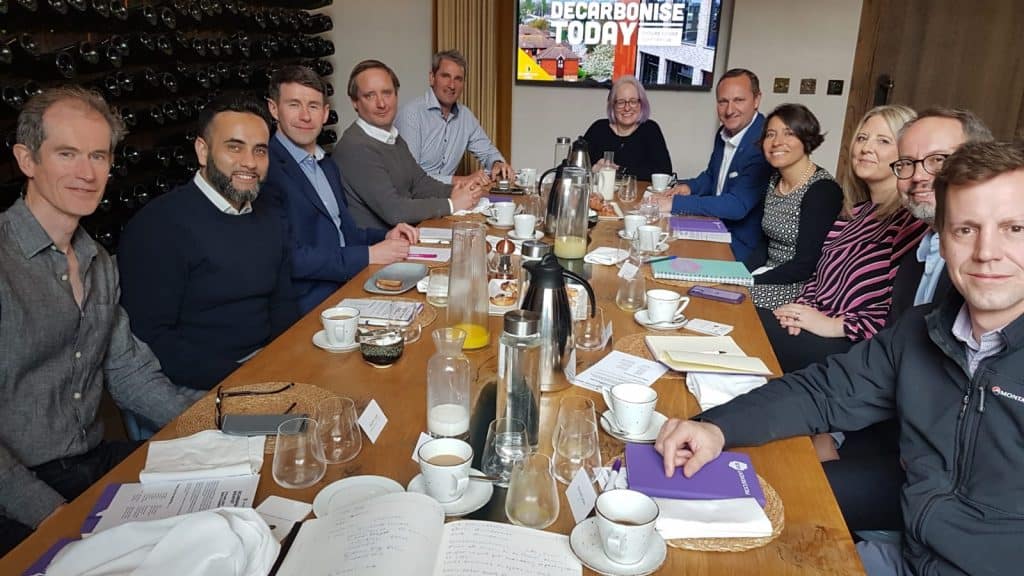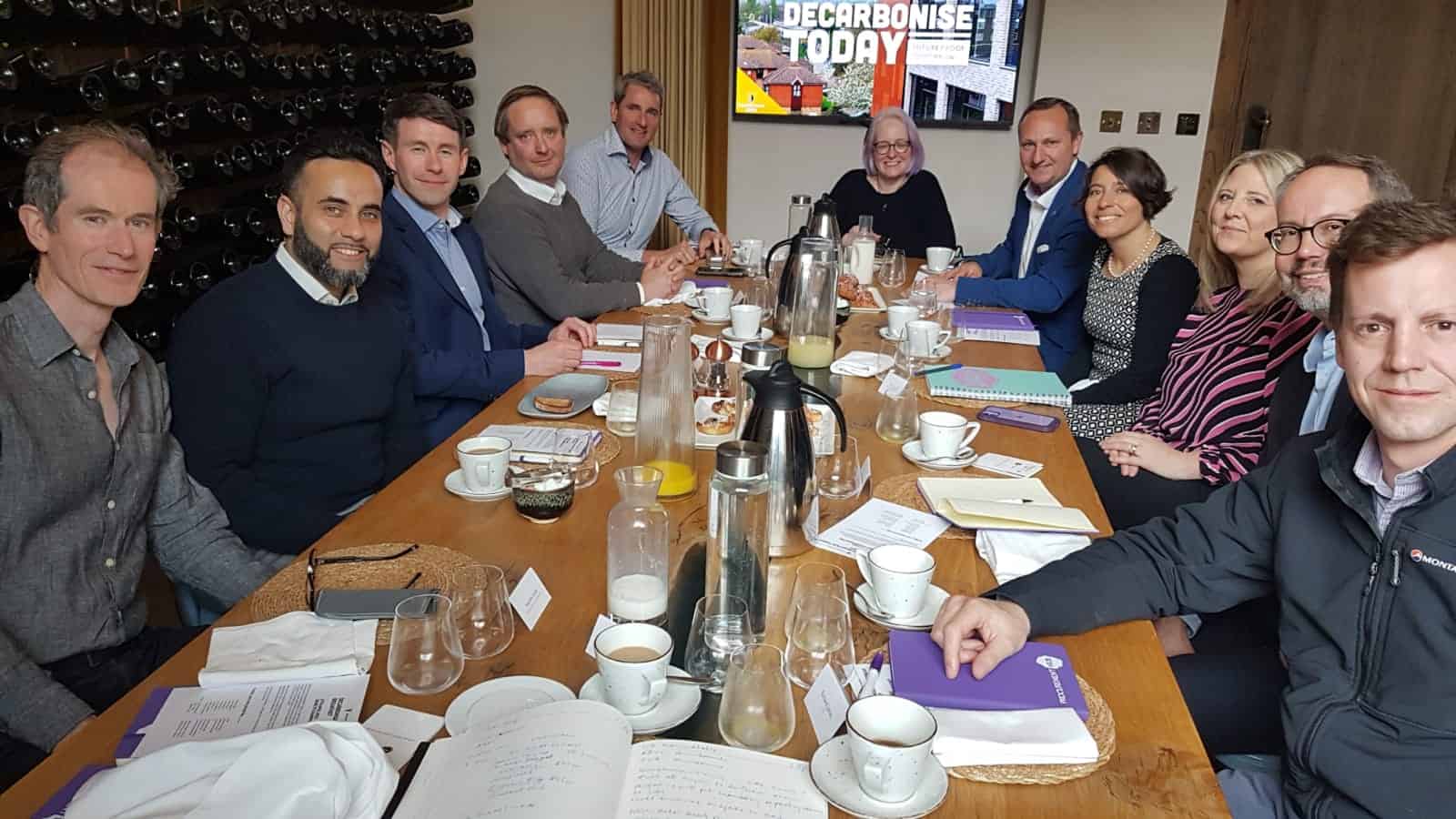Willmott Dixon Interiors hosted two breakfast roundtable events at the end of April inviting our specialists, customers, and consultant partners to discuss decarbonisation.
Last year, we launched our Decarbonise Today service to reduce carbon footprint across our customer’s estates. Through this service, we are working in partnership with our customers to simplify the decarbonisation process. By understanding our customer’s estate and decarbonisation plans, we can help to design and deliver a realistic and actionable plan to implement.
These roundtables focussed on supporting the Higher & Further Education sector with a separate discussion focussed on Local Authorities and the retained corporate estate, including the transition to a lower carbon estate.
Many high-quality conversations were had, particularly concentrated on the barriers and challenges faced, which need to be collaboratively tackled in order to succeed and deliver meaningful change to existing buildings through refurbishment projects and programmes.
Key themes included: the importance of establishing baseline asset data and early engagement with key stakeholders, opportunities for cross collaboration between the public and private sectors and creating an innovative but robust Decarbonisation Plan with a supporting business case. These areas are expanded on below.

Establishing Baseline Data
Accurate information is an essential component in the development of an organisation’s decarbonisation plan. The utilisation of accurate and up to date consumption data is a fundamental requirement in establishing a correct emission baseline position, to which detailed decarbonisation investment plans are developed from. A key stage is the validation of this information to ensure that it accurately reflects the consumption behaviours across the estate, to which more informed decarbonisation and capital investment plans are built upon. It is essential that data being utilised is accurate, reflecting the true position of an organisation’s asset base. By ensuring the data is as good as possible, provides a strong understanding of Scopes 1, 2 and 3 emissions.
Engagement with Key Stakeholders
Successful delivery of net zero/decarbonisation needs corporate buy in with business leaders driving the agenda. Many leaders are now realising that a robust sustainability strategy can be a powerful differentiator, seeking to define — and execute — ambitious plans, with many leaders seeing the transition to net-zero as an opportunity to increase longer-term green economic growth.

Collaboration
Stakeholder engagement and collaboration along with supply chain engagement is an important way to advance net-zero progress. Business leaders should look at collaborative approaches on net-zero transition. To make meaningful progress towards net-zero, organisations need an integrated, holistic strategy that breaks down internal silos and builds connections across departments. The establishment of a strategic delivery group can play a pivotal role in doing so, from setting the strategy, developing governance structures, assisting with commercial decision making, financing, while providing operational support.
Solid Business Case
Existing Capital plans, in many cases are based on like for like replacements of existing plant and equipment, many of these plans do not factor in the additional capital costs associated to supporting the transition away from fossil fuel use to low carbon/renewable alternatives, which are a key component in the decarbonisation of estates. Discussions are required at executive/board levels, to help develop short, medium and long-term delivery goals, capturing this within a clearly defined decarbonisation strategy, outlining the actions and capital investment required to support the delivery of these goals.
We’d like to thank all those who attended and for their contributions across both days. Willmott Dixon Interiors will be planning further topical roundtable breakfasts throughout the year.

